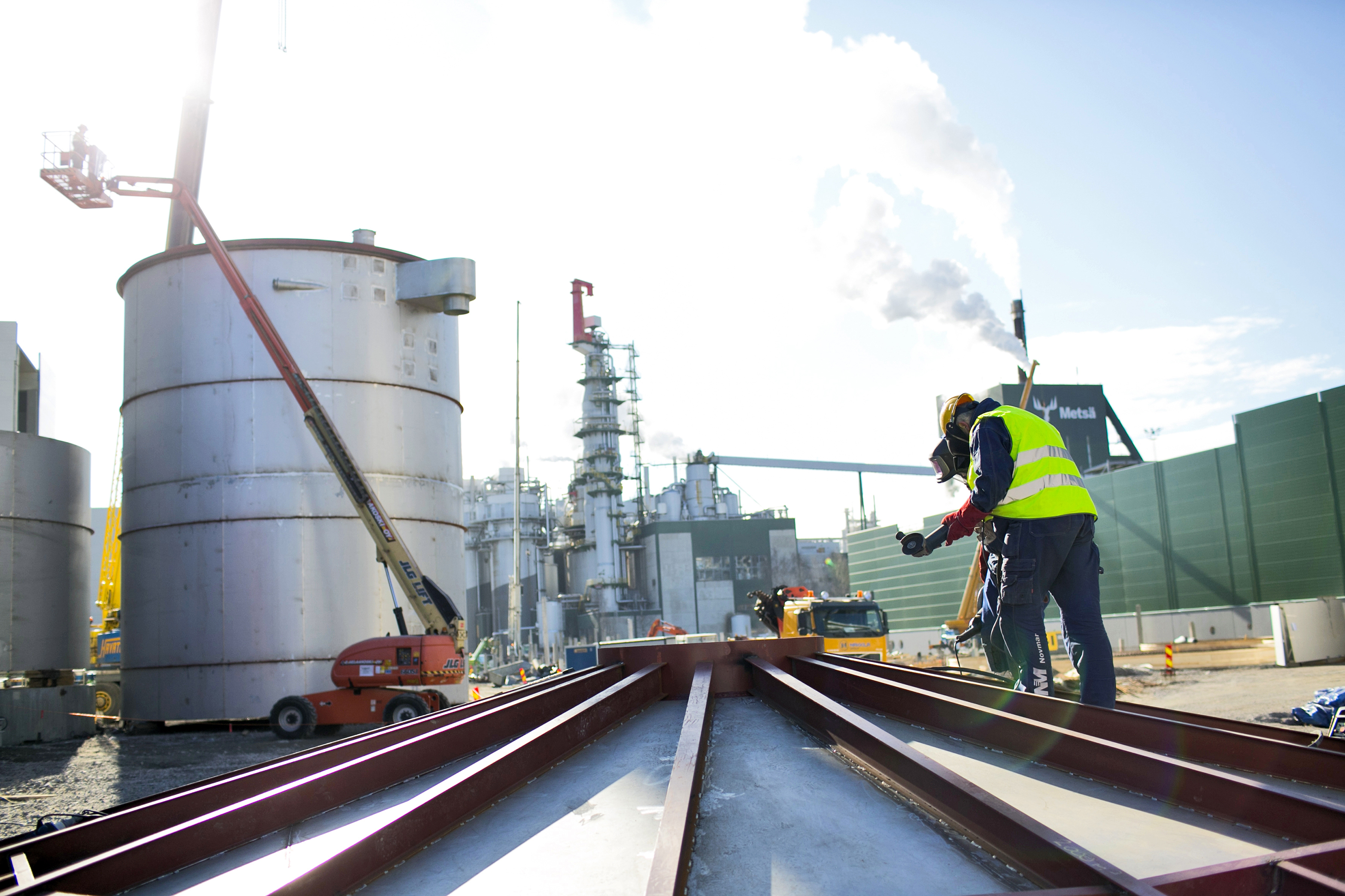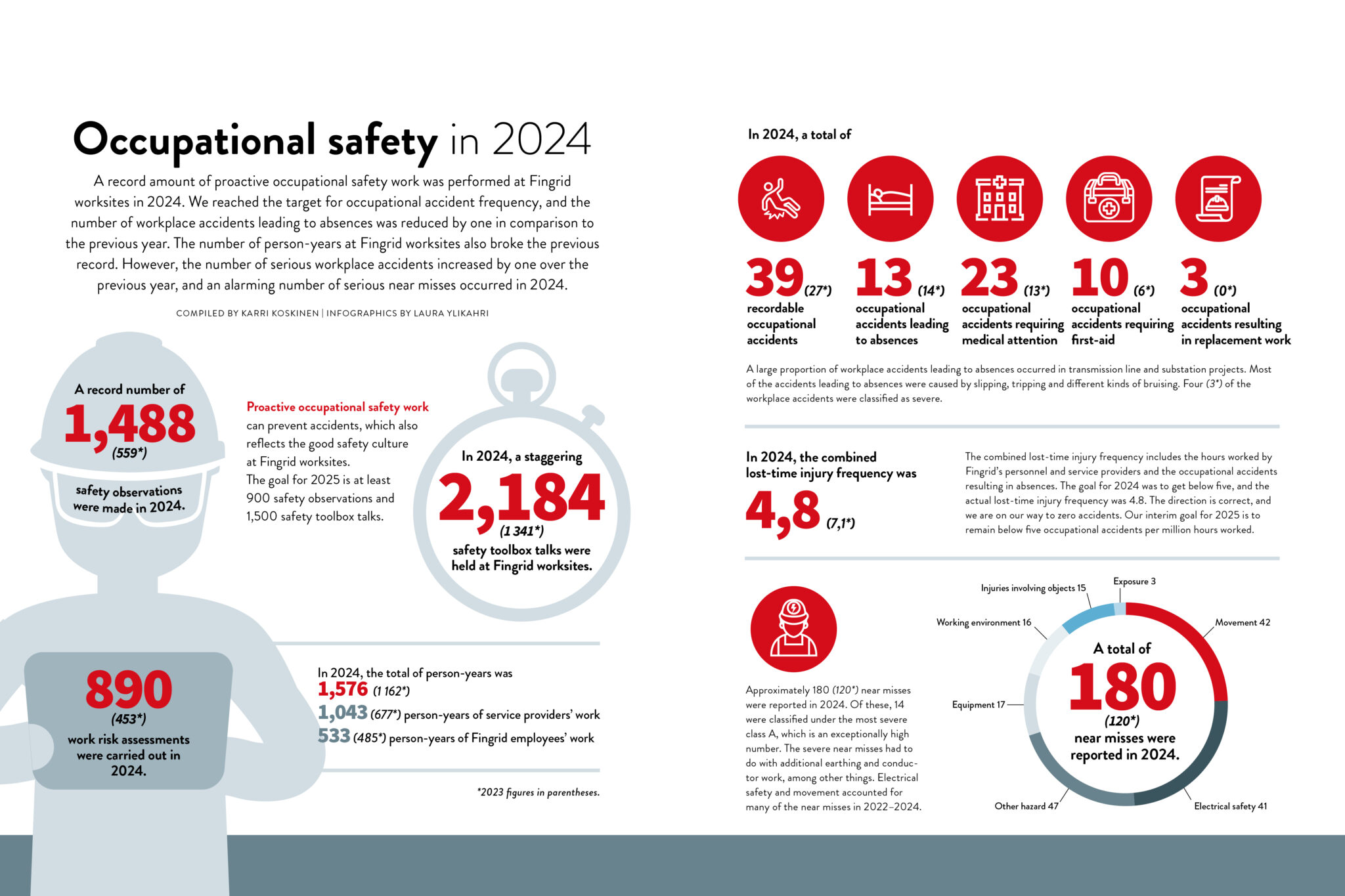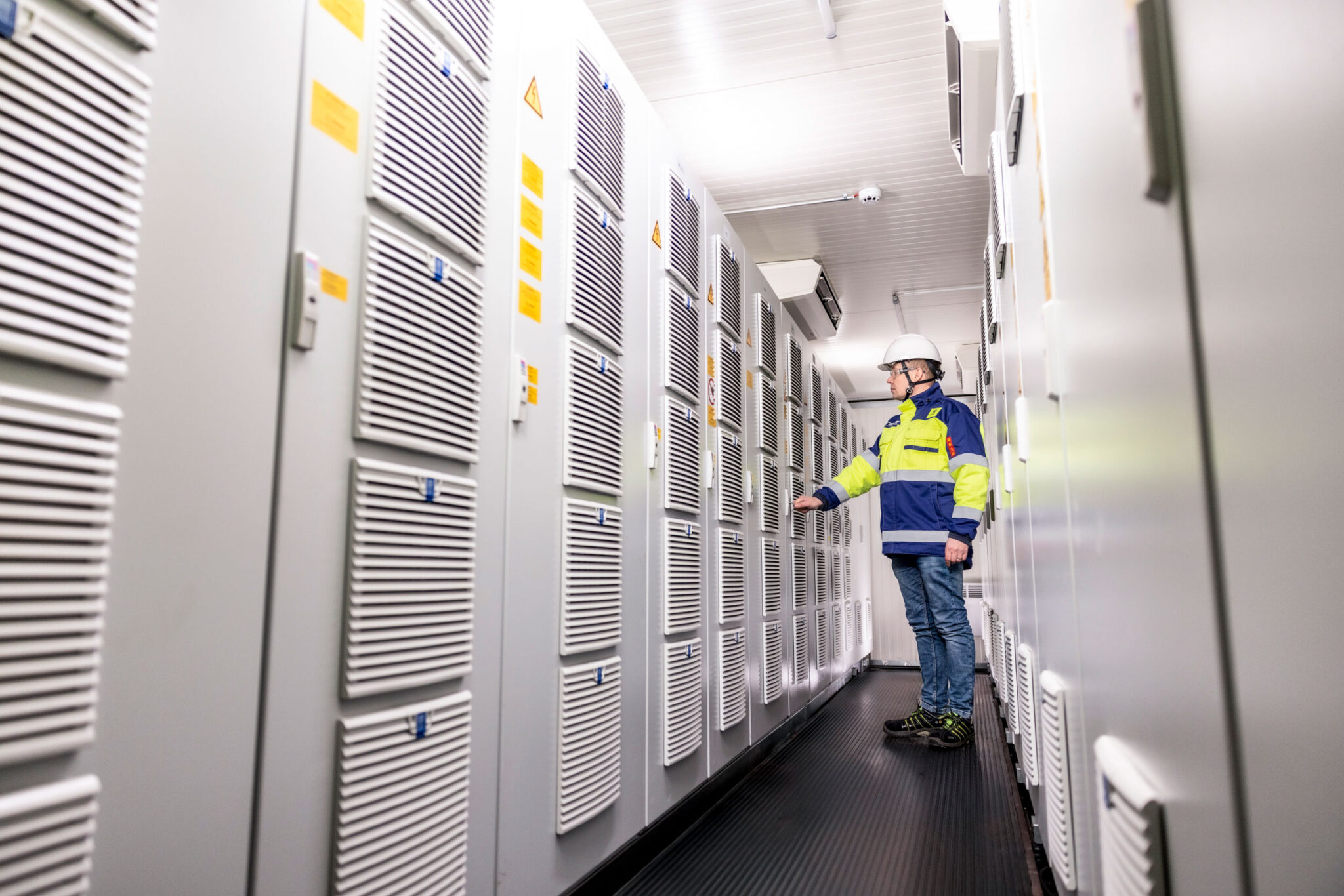The Metsä Group bioproduct mill represents the largest investment in the history of the Finnish forest industry. At a cost of 1.2 billion euros, the mill will have an annual production capacity of 1.3 million tons, mostly in the form of softwood pulp. Forecasts indicate that global demand for softwood pulp will increase from the present 24 million tons to 26 million tons by 2025.
The old pulp mill currently operating at the same location will be phased out once the new bioproduct mill becomes operational. Electricity production capacity in the mill area will increase to 285 megawatts when the new mill starts up in the autumn of next year. All of the fuel for energy production will be biomass, which in practice means that a renewable energy production plant has been added to the mill’s production process.
The increase in power will be handled by a generator with an apparent power of 325 MVA, and a new 2.6-kilometre electricity transmission line will also be needed alongside the existing line.
“The new transmission line will provide more security for electricity transmission. The line is also important because we will be selling significant amounts of the electricity produced by the bioproduct mill,” says Line Project Manager Jouko Kotilainen from Metsä Group.
The equity ratio for the mill under construction will be 240%, which means that the mill can sell 1.4 times the electricity used to meet its own needs. Calculations show that the amount of electricity required by the mill will be equivalent to the electricity consumption of approximately 36,000 ordinary electrically heated houses during the same period of time.
Precise excavation alongside a live switchyard
The new bioproduct mill will increase the annual value of Finland’s exports by EUR 500 million. Finland’s combined electricity production capacity of some 11,600 MW will increase by approximately 3% as a result of the new electricity production capacity being built to provide the electricity for the bioproduct mill.
“We’re building two new bays at Koivisto substation as well as a new main busbar system and reserve power machine. After this work is completed in December, our station will be ready to connect customer’s new Äänekoski transmission line to the main grid ,” says Fingrid’s Project Manager Petri Hämäläinen. “In order to transmit the electrical power produced by the customer to other parts of our main grid, we have a second project that involves building a new transmission line from Koivisto substation to our Vihtavuori substation.”
Fingrid arranged a competitive bidding process for the substation work, which was won by TMV Service Oy. Along with installation work for the high voltage systems, the contract includes demanding excavation work in the immediate vicinity of the live and operational switchyard. This requires the contractor to observe very strict vibration limits.
“We’ve measured the maximum vibration acceleration of 0.5 g where the upper limit is 1.6 g. Staying within these limits ensures that the excavation work poses absolutely no risk to the system security of the production process,” says Project Manager Jukka Roponen from TMV Service.
The substation extension also includes bus protection, which, along with the construction of a second transmission line, also contributes to improving security of supply to the bioproduct mill and other customers.
A big step towards a circular economy
Although Metsä Group is, in terms of electrical energy needs, by far the largest recipient of electricity from Koivisto substation, it has signed the same connection agreement with Fingrid as every other customer. Of course, the stimulus for Fingrid’s construction decision was the investment decision made by Metsä Group.
Total electricity production at the new bioproduct mill will be some 1,800 GWh per year. A total of 640 GWh of district heating and steam will also be produced in the process. Approximately 550 GWh of “wood energy” will become available for sale each year, while the mill itself will use the bark from the bioproduct mill to produce biogas.
Metsä Group’s Äänekoski bioproduct mill will not use any fossil fuels. All of the wood raw material and production side streams will be utilised. This means that the mill will serve as an important industrial step towards a circular economy.
The majority of the wood raw material will come from Finland. In this case, only softwood from the northern hemisphere meets the quality criteria for long-fibre. This will result in pulp of the highest possible quality. •







